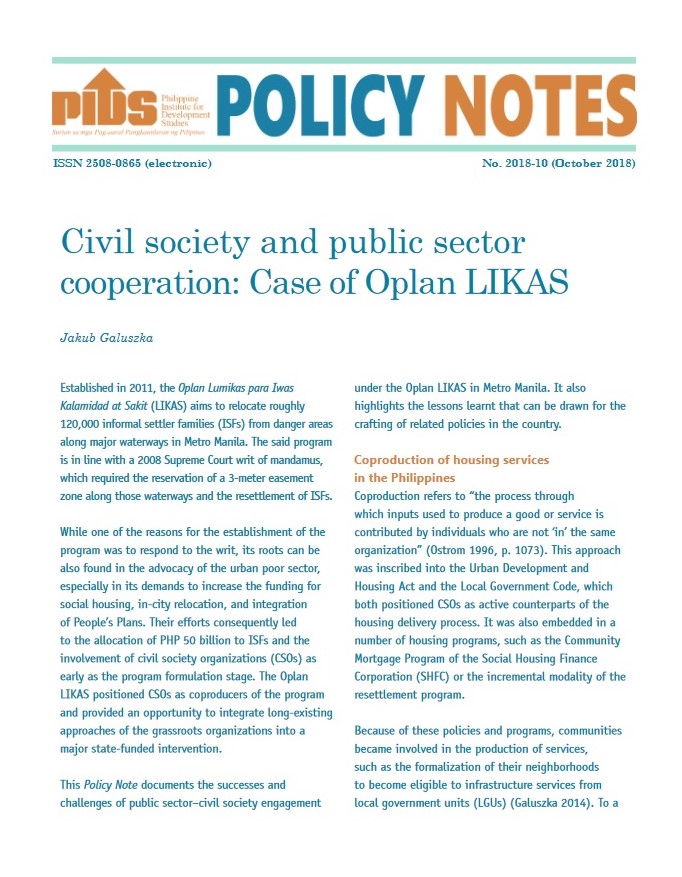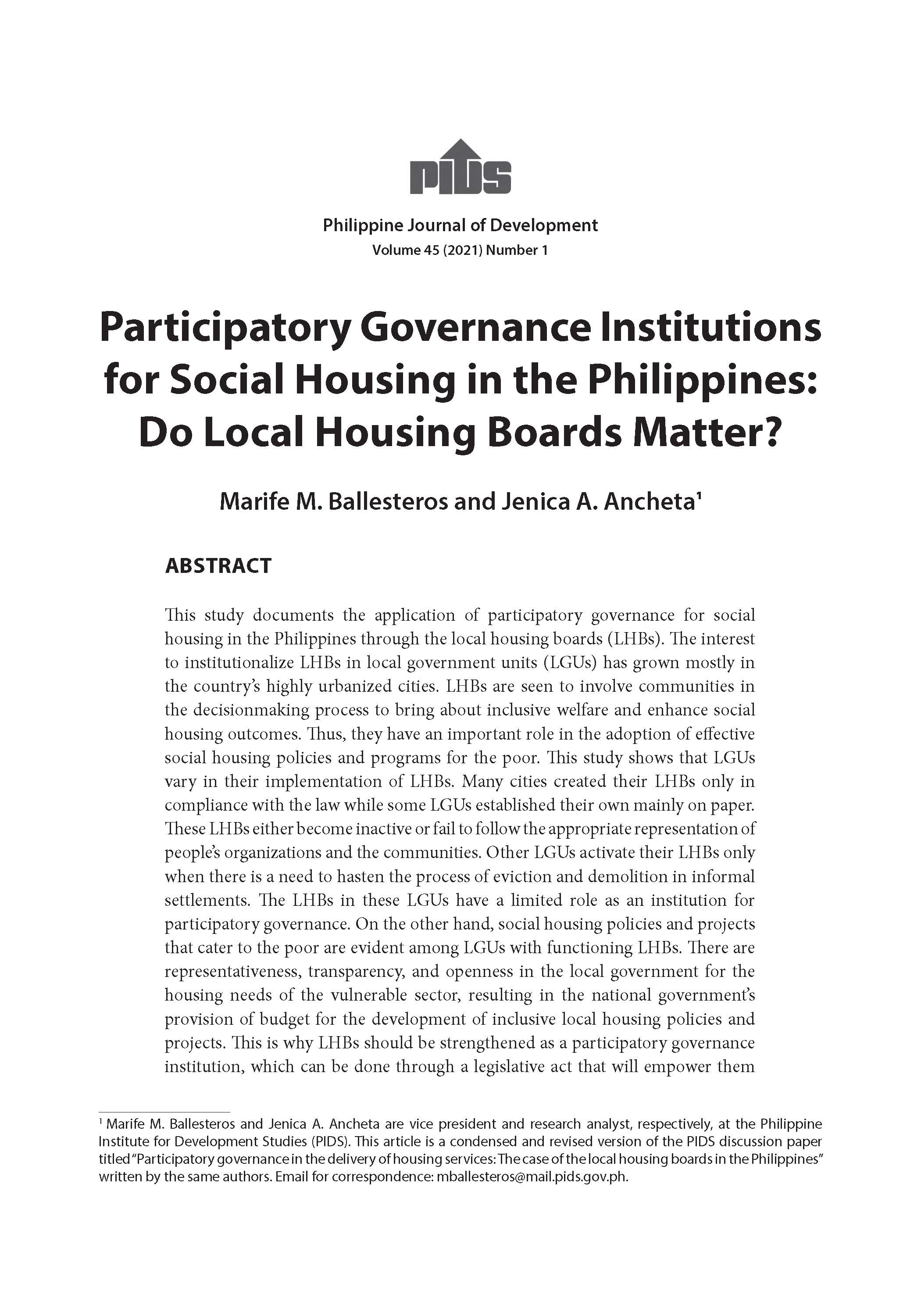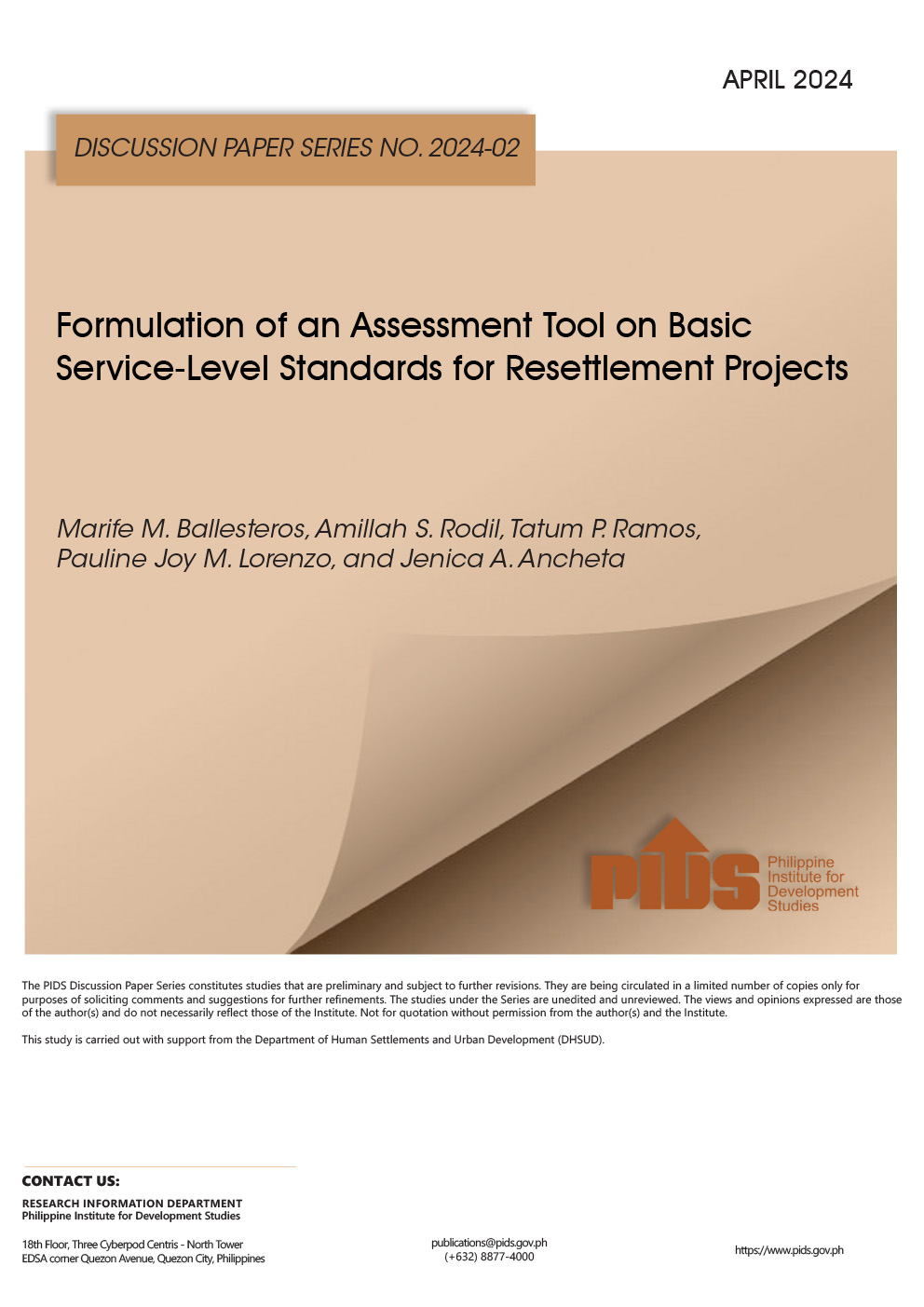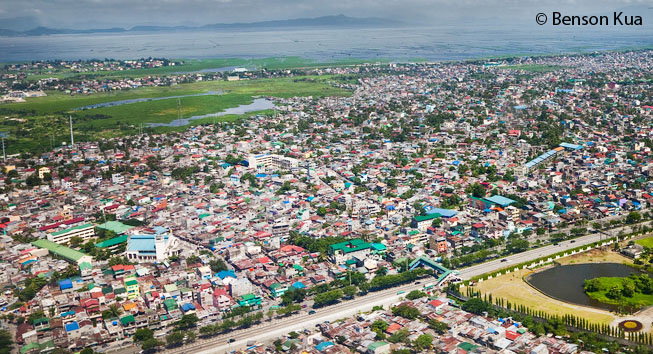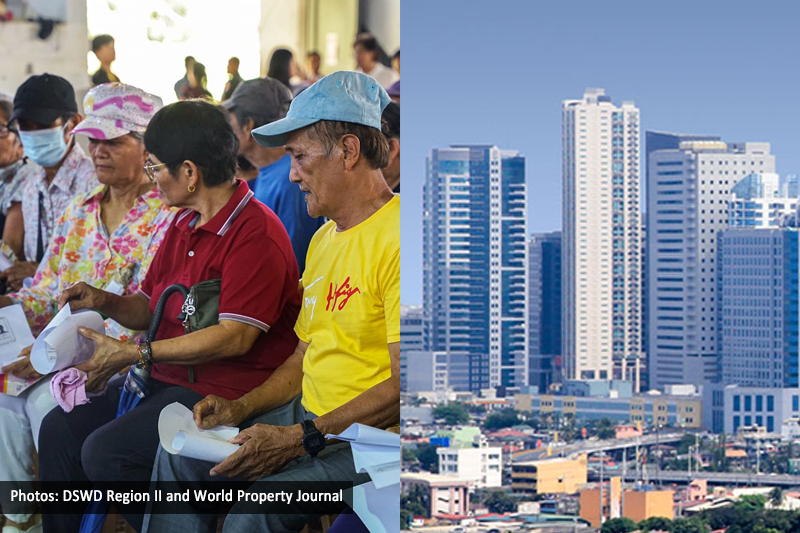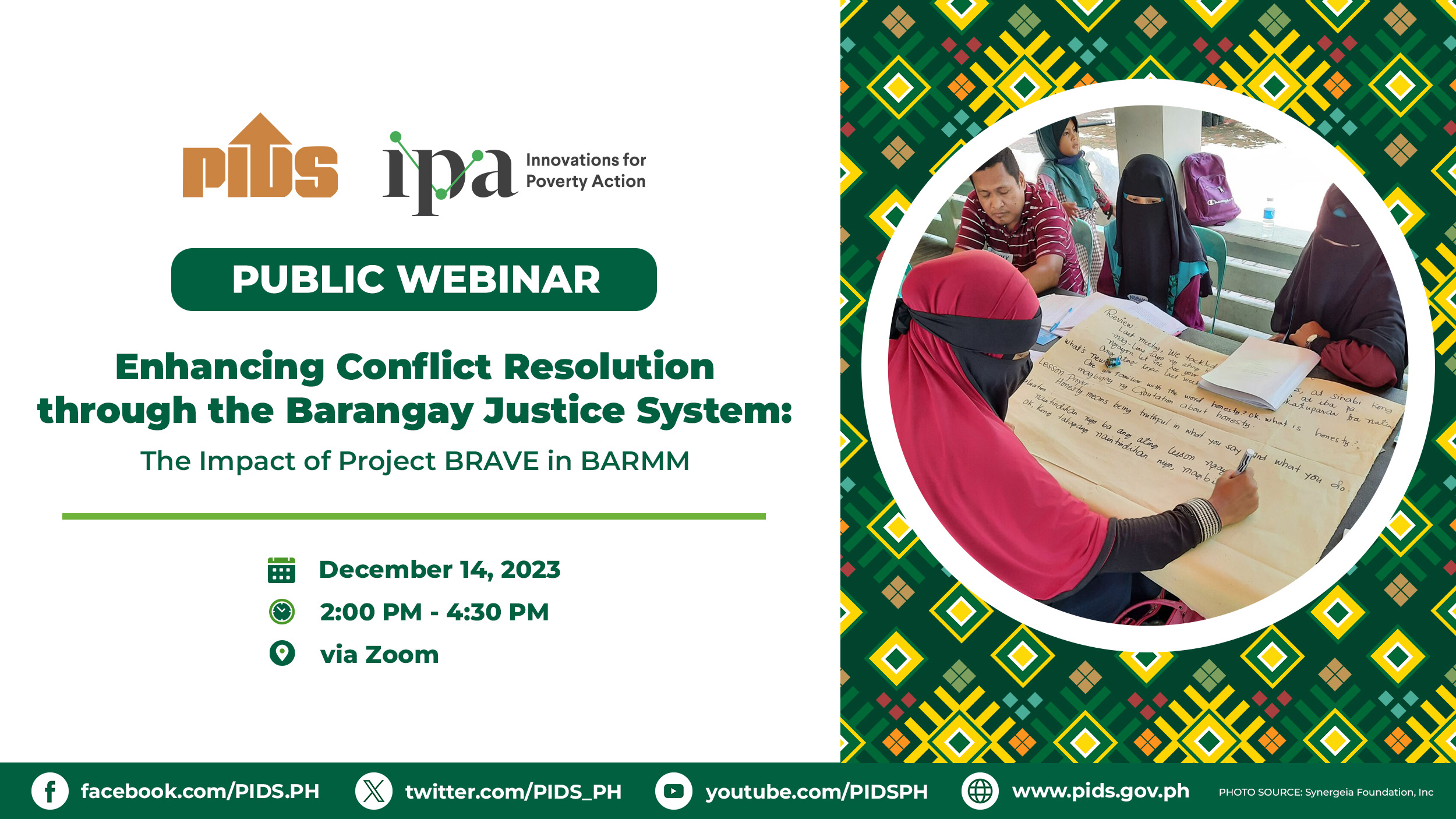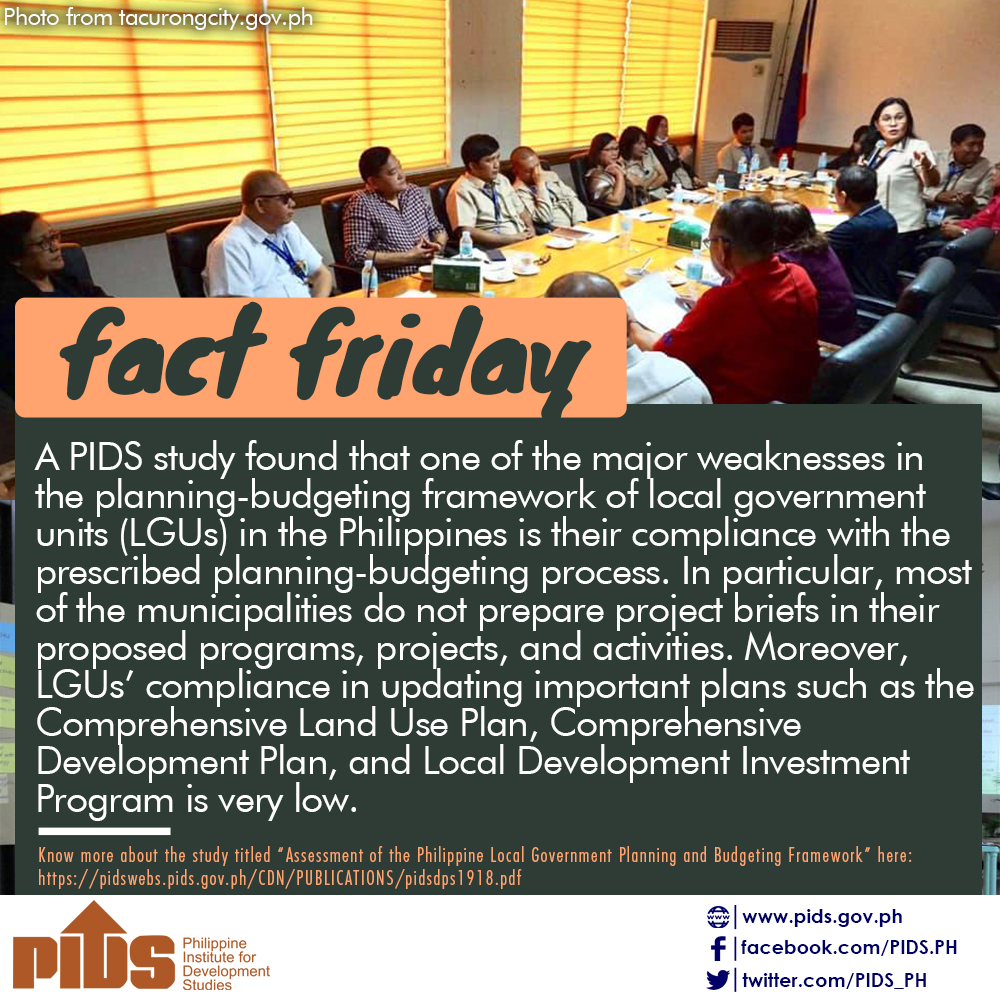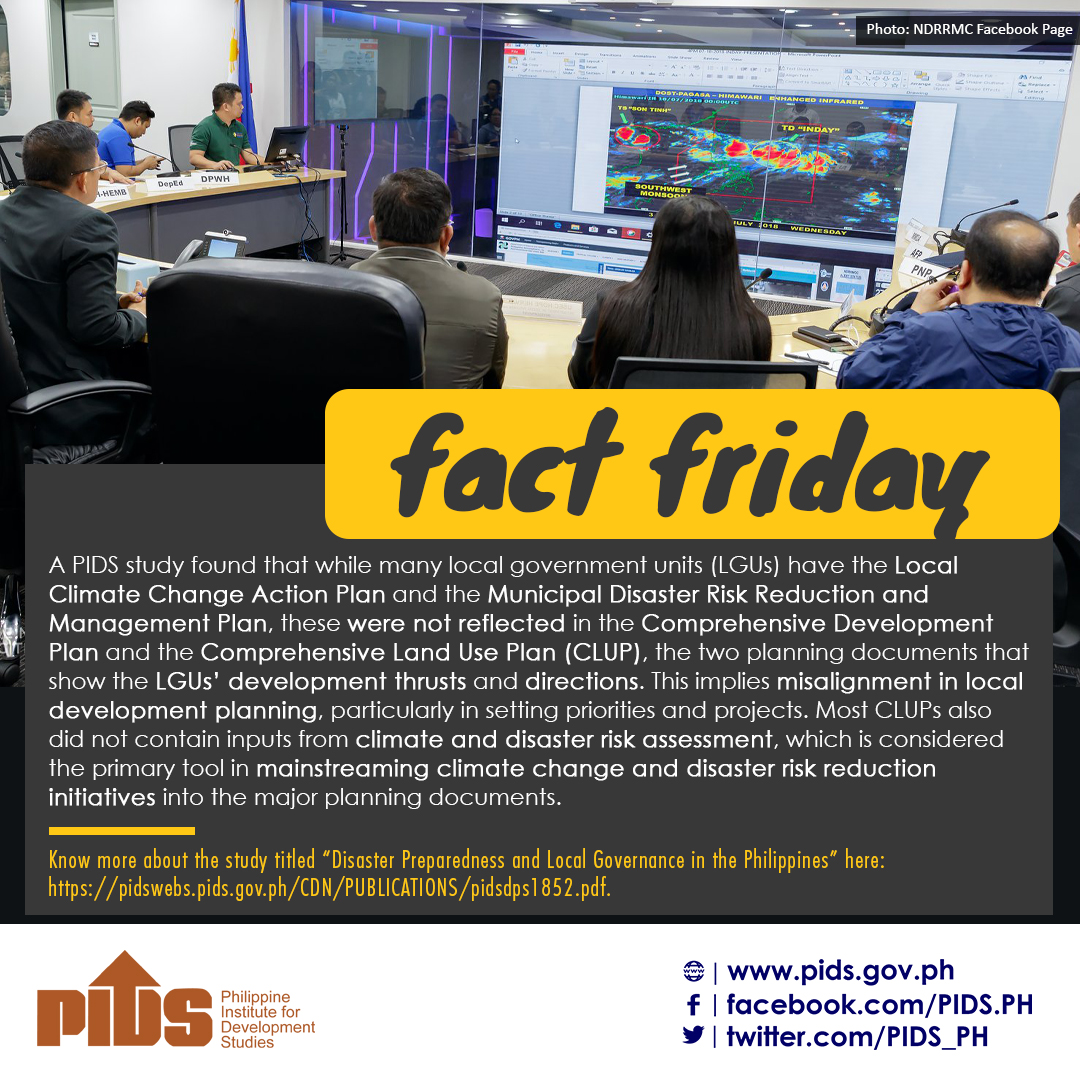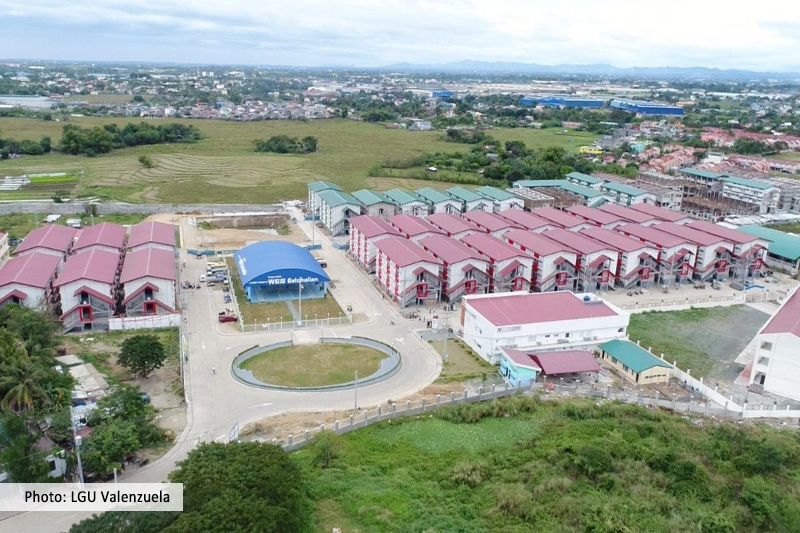
The Philippine Institute for Development Studies (PIDS) has unveiled a pioneering assessment tool to enhance the planning and execution of resettlement projects, and improve the conditions of resettled communities in the Philippines.
Led by PIDS Vice President Dr. Marife Ballesteros and her co-authors, the study titled “Formulation of an Assessment Tool on Basic Service-Level Standards for Resettlement Projects” addresses critical deficiencies in current practices, ensuring adherence to basic service-level standards mandated by the Urban Development and Housing Act of 1992.
“Ensuring the delivery of basic services identified in the Urban Development and Housing Act, including the availability of employment opportunities and decent housing at affordable cost, will improve the conditions of the homeless and underprivileged in resettlement sites,” said the authors.
To develop the tool, the study evaluated several prominent resettlement projects across the country, including Disiplina Village in Valenzuela City, Family Townhomes in Taguig City, Alpas Phase 1 in San Jose Del Monte City, DREAMVille in Tacloban City, Xavier Ecoville in Cagayan de Oro City, and Pamayandeg sa Ranaw Residences in Marawi City. Preliminary assessments indicate that these projects generally exhibit good practices based on initial online reviews.
The assessment tool provides a structured framework that includes institutional capabilities and community involvement, along with essential physical design aspects for sustainable resettlement sites. This not only ensures compliance with basic standards but also fosters inclusive, safe, and sustainable communities.
Highlighting both minimum standards and recommended best practices, the assessment tool can be used for evaluating existing resettlement sites in terms of adherence to established criteria for location, settlement, and housing design. It also incorporates the Community Transformative scorecard developed by the Ateneo School of Governance and the Department of the Interior and Local Government (DILG), which measures community development across six dimensions.
Moreover, the study advocates for integrating the above standards into the ongoing update of the National Resettlement Policy Framework. This integration, which can be facilitated through collaboration between the Department of Human Settlements and Urban Development and the DILG, will allow the alignment of resettlement planning with national development priorities, including the National Urban Housing and Development Framework and the Philippine Development Plan.
The study highlighted the importance of resilient, inclusive settlements that improve the well-being of marginalized communities affected by development projects. It recommends the promotion of global best practices and standards, provision of financial incentives, and prioritization of compliant local government units (LGUs) in national projects.
“It is crucial to emphasize a collaborative and participatory process, and the need to build capacities of LGUs for forward planning to ensure efficiency and effectiveness in the delivery of basic services in resettlement sites,” the authors stressed.
Read the full study at https://pids.gov.ph/publication/discussion-papers/formulation-of-an-assessment-tool-on-basic-service-level-standards-for-resettlement-projects.###

